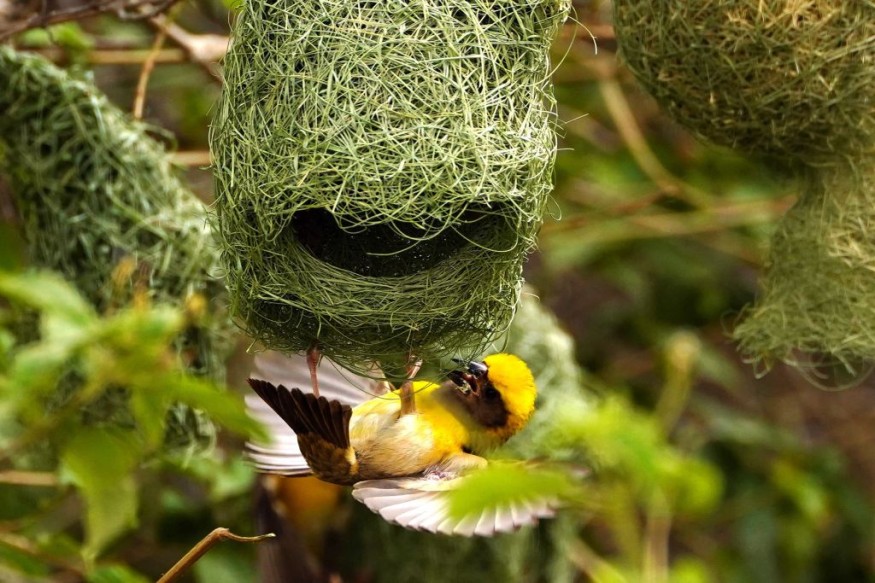Vegetarian weaver birds in sub-Saharan Africa are found to be more social compared to other insect eater birds, according to a new study.
The research was made by researchers from the University of Bath in the UK, Sun Yat-Sen University in China, and the University of Pannonia in Hungary.
In a groundbreaking discovery in the field of behavioral ecology, the notion was first proposed in an ecological hypothesis 58 years ago.
Currently, researchers have proven that there is a corresponding social behavior relative to the food that vegetarian birds eat.
Weaver Birds

Weaver birds are one of the families of 118 songbird species whose natural habitat can be found mostly in the African sub-continent.
Their name was derived from their ability to construct nests.
Some of the bird species live in the savannah to feed on seeds and forests to make insects their main menu.
In the new study published in the journal American Naturalist on March 30, a joint-collaborative statistical study was able to give a complete picture of the correlation between diet, habitat, social behavior, and mating behavior among the birds.
The research was led by an international team of scientists from the Milner Center for Evolution at the University of Bath.
Social and Mating Behaviors
The behavioral ecologists observed that the weaver birds living in the savannah flock and forage together with the objective of finding seeds as their main food source, as per the American Association for the Advancement of Science (AAAS).
Apart from this social behavior, the birds also exhibited polygamous breeding behavior when nesting in large colonies.
The same birds were seen to pair with multiple partners for each mating season.
Moreover, the other bird species living in a forest tend to isolate themselves when foraging and nesting. This entails that these avians do not flock together when searching for insect food, as well as when living in colonies.
In terms of mating, forest-dwelling birds are monogamous breeders since they only have one partner for each mating season.
Study Data and Method
The team had based their approach from the ecological hypothesis of British ethologist John Crook in 1964.
Crook is the first one to propose that there is a statistical link between the food, territory, and social interaction of the birds.
In addition, Crook's hypothesis suggested that there are ecological effects on mating systems.
In the new study, the scientists collected data from previous studies on a myriad of weaver species, investigating the relationships between their three lifestyle factors.
The team cross-examined the number of birds in a particular habitat under the guidance of Crook's theory.
The theory had a long-lasting influence on several generations of behavioral ecologists, as per AAAS.
Still, the study's leading author from China Dr. Zitan Song is reportedly planning to conduct a follow-up study, as per Science Daily. This is to verify the general theoretical underpinnings of Crook's theory.
Separate yet related research is also expected to start in the coming years or decades.
Prior to the new study, both anecdotal evidence and research show that birds do flock together.
However, there is no concrete knowledge that certain ecological factors like the vegetarian birds will also affect their mating and social behaviors.
Related Article: Orb-weaver Spider Baffles Scientists with Pulsating Disco Moves
© 2025 NatureWorldNews.com All rights reserved. Do not reproduce without permission.





